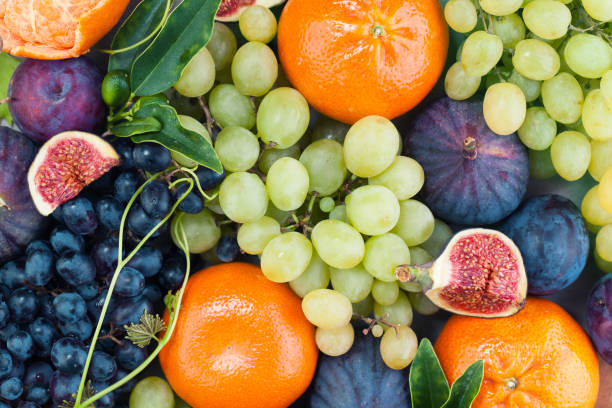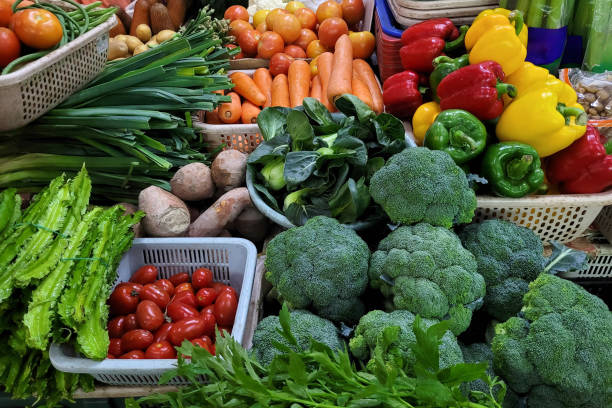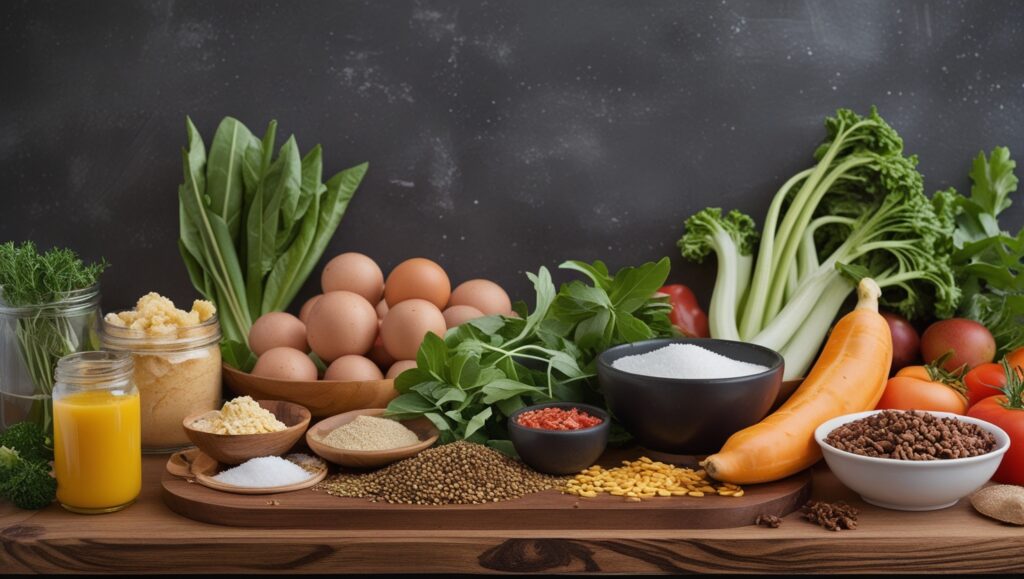You’re not alone if you’re tired of trying to get your child to eat nutritious food. Every parent struggles daily with ensuring their little ones eat healthy meals. Snacking all day and consuming empty-calorie foods can quickly become a habit that’s hard to break
1. Fruits & Vegetables
Fruits and vegetables provide essential vitamins, minerals, and fiber.
Key Vitamins:
- Vitamin C: Found in citrus fruits, peppers, broccoli, Brussels sprouts, and sweet potatoes.
- Vitamin A: Known as beta-carotene, this vitamin is found in various fruits and vegetables, including kale, spinach, mango, and guava. It is also present in animal products such as beef, chicken, fish, cheese, and eggs.
- Vitamin E: Found in plant-based oils, nuts, seeds, fruits, and vegetables. Rich sources include wheat germ oil, sunflower oil, safflower oil, abalone, trout, and salmon.
Minerals & Fiber:
- Minerals: Abundant in meat, fish, dairy, fruits, vegetables, nuts, and legumes.
- Fiber: Primarily found in plant-based foods such as fruits, vegetables, whole grains, and legumes.
Healthy Eating Tips:
✅ Aim for at least 5 servings per day.
✅ Include a variety of colors (e.g., carrots, spinach, oranges, berries).
🚫 Avoid fruit juices with added sugar, as they can increase blood sugar levels. Choose pure juice with no added sugars or juice concentrate.

2. Whole Grains
Whole grains are a healthier choice compared to refined grains because they contain more nutrients and fiber.
Benefits of Whole Grains:
- More Nutrients: Whole grains retain the bran, germ, and endosperm, which provide fiber, vitamins, minerals, and antioxidants.
- Lower Risk of Disease: May help reduce the risk of stroke, colon cancer, and cardiovascular disease.
- High in Fiber: Helps improve digestion and supports overall health.
Examples of Whole Grains:
- Brown rice
- Whole wheat bread
- Oats
- Quinoa
Whole grains provide fiber, energy, and B vitamins, making them an excellent choice for children’s growth and development.
✅ Supports muscle growth & brain development
🚫 Avoid processed meats such as hot dogs and sausages
3. Protein
Protein is essential for a child’s growth, muscle development, and overall health.
Good Sources of Protein:
- Lean meats (chicken, turkey, beef)
- Fish (especially fatty fish like salmon, which supports brain health)
- Eggs
- Beans & lentils
- Tofu & nuts
✅ Supports muscle growth & brain development
🚫 Avoid processed meats such as hot dogs and sausages
4. Dairy & Calcium-Rich Foods
For strong bones and teeth, dairy products such as milk, cheese, and yogurt, along with fortified plant-based alternatives, are rich in calcium and essential for bone development. Calcium and vitamin D work together to support bone health.
Other Calcium-Rich Foods:
Leafy Greens
- Examples: Kale, spinach, broccoli, cabbage, okra
- Dark leafy greens are rich in calcium, magnesium, and vitamin K.
- Kale and broccoli contain highly bioavailable calcium, meaning the body absorbs it well.
- Spinach, while rich in calcium, contains oxalates that reduce absorption. Pairing it with vitamin C-rich foods can improve absorption.
Fortified Plant-Based Milk
- Examples: Almond milk, soy milk, rice milk
- Many are fortified with calcium and vitamin D to match cow’s milk. Always check labels for added nutrients.
Nuts
- Almonds are among the highest calcium-containing nuts.
- Also rich in healthy fats, protein, and magnesium, which support bone strength.
Sardines & Salmon
- Canned fish with bones (such as salmon and sardines) provide calcium.
- These fish are also rich in omega-3 fatty acids and vitamin D, both of which enhance calcium absorption.
- Pairing them with leafy greens enhances their benefits.
Tofu
- An excellent plant-based calcium source, especially if made with calcium sulfate.
- Also rich in protein and can be used in stir-fries, smoothies, or soups.
Fortified Orange Juice
- Natural orange juice does not contain calcium, but many brands fortify it with calcium and vitamin D.
- The vitamin C in orange juice also helps with calcium absorption.
Beans
- Provide calcium, magnesium, and phosphorus, all essential for strong bones.
- White beans and navy beans have the highest calcium content.
Edamame
- A great source of calcium, protein, and isoflavones, which may help maintain bone density.
- One cup of cooked edamame provides 10% of the daily recommended calcium intake.
Winter Squash
- A good source of calcium, magnesium, and potassium, all of which support bone health.
- Also high in beta-carotene, which benefits overall body function.
Bread & Fortified Flour
- Some whole grain bread and fortified flour products contain added calcium, magnesium, and phosphorus, which contribute to bone health.
Tips for Strong Bones & Teeth:
✅ Eat a balanced diet rich in fruits, vegetables, whole grains, and lean protein.
✅ Maintain a healthy weight.
✅ Get 1,000 to 1,200 mg of calcium per day.
✅ Consider a calcium supplement if needed.

5. Healthy Fats
Healthy fats are essential for brain function and overall well-being.
Best Sources of Healthy Fats:
- Avocados
- Nuts & seeds (almonds, walnuts, chia seeds, flaxseeds)
- Olive oil & avocado oil
Fatty fish (salmon, sardines, trout)

